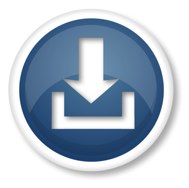Adam Wong works at the Office of the National Coordinator for Health Information Technology, all of which, thankfully, can be abbreviated: ONC for Health IT. The development of health IT — which includes everything from electronic medical records to smartphone apps — is at its best a populist project, involving techies, patients, students and health care professionals. I spoke with Adam about some of the recent developments in health IT and how medical students can share and participate.
Seth Einterz: You’re a self-described movie buff and baseball nerd. Have you seen “Moneyball“?
Adam Wong: I’ve seen the movie and read the book.
SE: Great, so in the film the character Peter Brand recognizes that there’s a necessity to re-evaluate the way ball clubs are run. He says, “People are overlooked for a variety of biased reasons and perceived flaws.” If the patient is sometimes an overlooked person in the health care exchange, how do developments in IT, and especially the Blue Button, help to change that?
AW: The Blue Button represents an initiative to get all consumers to access their health data, to see, verify, and check that it is correct, and to help them to see more of what’s there. And therefore to get them more engaged in their own health and to help motivate them to get more help and to take more charge of their data.
Doctors have a lot to do, and so by getting people more engaged in their own health information, we help them be in a position to find the mistakes and medical errors, as well as have the information they need to take better control of their own health.
Also, there were a lot of underrated statistics in “Moneyball,” and I think increasing usage of patient health data is very similar. The Blue Button fits into the big data-ization of just about everything. So one of the things we’re thinking about is how to convert this massive tidal wave of information into ways that are conceivable and usable by patients.
SE: So tell us about the ways ONC fosters the development of health IT.
AW: In my office at ONC, we come up with a problem or an issue, or we have one of our own standards or data sets that we want people to use, and then we come up with a set of basic functionalities. And then we turn that into a problem statement, and we ask people to develop these apps. The best receive prizes.
An example of this was the Health Design Challenge: the point was to redesign the patient health record. The printouts we see are just text files that look like they came out of the 1980s, and obviously that is not helpful on a number of levels. So we designed that challenge, got 235 responses. We picked a number of winners and they were legitimately beautiful patient health record designs that help people get the information they need: it’s understandable and it’s usable.
SE: Cool. How can medical students get involved?
AW: All these efforts — codeathons and challenges — are open to anyone. We really want to wrangle the enthusiasm of people who are interested in these ideas. Even if medical students don’t have coding expertise, we’ve found that really successful teams are multidisciplinary: they have coding knowledge, health IT knowledge and medical knowledge. The teams that have a lot of intersecting Venn diagrams tend to be really successful.
SE: Tell us about code-a-thons.
AW: We’ve increasingly been doing work at code-a-thons, or hackathons, which are less structured but have a similar concept as the challenges. At the hackathon in Boston, we worked with Tufts MedStart, the Tufts MD/MBA program, and the Hacking Medicine group at MIT. So we had a number of graduate students from all the different schools around Boston, but we also had patients, developers and entrepreneurs.
Having all these people in the same place is an amazing way for new ideas to spread or new companies to be formed. So even if a medical student doesn’t have a specific idea, or they don’t have specific expertise, or they don’t feel qualified, they should come. They will learn a lot. And the code-a-thons are straight up just a lot of fun, and it’s great to hear the ideas and the pitches. I would just strongly encourage all kinds of people to participate: you never know what’s going to happen.


